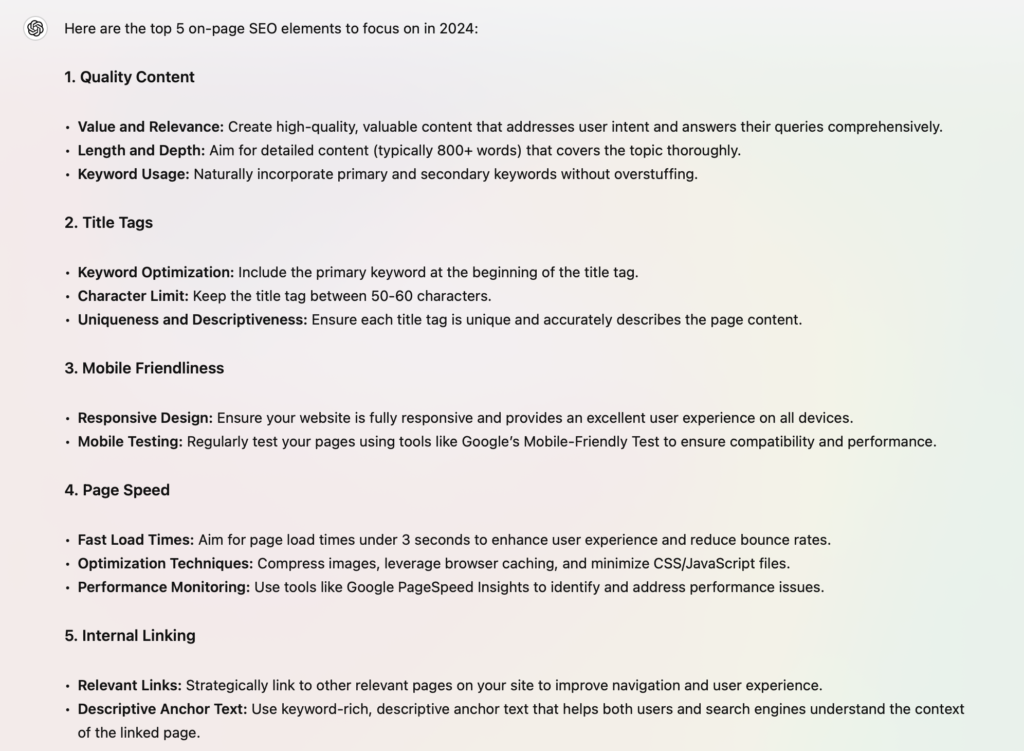
URL, title and H1
The main keyword should appear in the URL, title and H1. Avoid being too long and be descriptive
Use tools such as Ahrefs to find the main keyword and related keywords
The content of the title and H1 can be different, but they must be able to complement each other and highlight the website theme and keywords
You can use numbers, dates, adjectives and other elements that stimulate clicks in the title
URL
It has a high degree of impact on SEO
Use a static URL with a logical classification structure and keywords, such as: http://www.website.com/relevant-category/primary-keyword
Should use a short, easy-to-read, lowercase URL containing a hyphen “-“.
Please avoid using stop words: for example, a, the, and, or, but, an, of, etc.
Remember not to repeat keywords in the URL, and don’t over-stack keywords.
Do not change the URL at will after going online.
H1
Reference to competing products
Include keywords
Include more other words related to the keyword, not only its synonyms, but more related keywords
Title
Potentially high impact on SEO:
Consult competing products
Start with a keyword
Title should fall under 2 categories, Noun Type and How to Type
Noun Type: Example: Java Basic Type: What it is? (10 Samples)
How to Type: Example: How to Convert Int to Long?
Tools: Title Capitalization Tool, Yoast SEO
Practice: Observe the titles of competing product pages, then combine the best titles from several pages
Practice: Be slightly exaggerated in the title, add descriptive adjectives, numbers, dates, but avoid being too exaggerated
- Get/Take/Learn/Make/Fix/Solve
- Top/Fast/Amazing/Best/Free/Great
- Perfect Practices/Guide/Review
- 3 Step Process/10 Samples/10 Examples/
Pay attention to avoid duplication or similarity in the title page: if it appears, 301 processing.
Be careful not to include Stop Words: A, And, But, So, On, Or, The, Was, With.
Pay attention to the long tail problem:
(1) For example, if the title of your article is “best earphone”, but you mention related terms such as wireless or Bluetooth in the article, the long tail of the article will change. It will no longer be “best earphone”, but “best wireless earphone” or “best bluetooth earphone”.
(2) If the title of your article is “Bluetooth headset”, you need to write for this keyword, but if the content of your article is “How to use Bluetooth headset”, then the theme of the article will change and will no longer be “Bluetooth headset”.
Page content
The content should revolve around the main keyword and related keywords, be original, and provide unique value to users.
Write articles for long-tail keywords and add relevant images, videos and other media to enhance the attractiveness of the page.
Make sure the content is fluent and easy to read, organized, and the website structure is well laid out, and does not force users to stay in a specific position.
Supplement the missing content of this site, and use Ahrefs’ Content Gap function to determine the content that needs to be supplemented.
Content dimension
Reference to competitors
High influence: good SEO effect
The content should be at least 1,000 words
Try to control it within 3 lines in a paragraph, and no more than 20 words in a sentence, so that the article is clear and easy to read.
The overall structure, highlight the keywords and repeat them.
The keywords appear frequently in the first 100 to 150 words at the beginning.
The keywords are also mentioned at the end to strengthen the influence of the keywords in the whole text.
Image optimization alt tag, for example: on_page_SEO.png
The setting of internal links makes the article structure clearer.
Competition
Use tools such as Ahrefs to analyze competition and select keywords that are easy to rank for optimization
Prioritize optimizing keywords with low competition and gradually improve the authority and ranking of the website
When promoting pages, first promote top pages, then observe which pages can rank and optimize them
In summary, the key to Google SEO is to be user-centric, provide valuable and well-organized content, and optimize website structure and elements to improve user experience and search engine rankings.